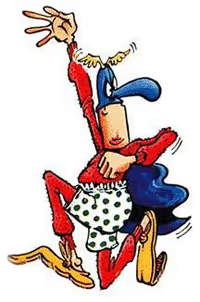An Open Letter from Dylan Farrow
FindingNamo
Broadway Legend Joined: 7/22/03
#150An Open Letter from Dylan Farrow
Posted: 2/3/14 at 4:25pm
On the one hand, it's amazing what the memory can create all on its own. On the other, lives can be devastated when it is taken at face value.
It really is worth looking at the Wikipedia entry on "The Courage to Heal." I can't stress the importance of how foundational the book was in building the abuse survivor cottage industry. Worth noting is the refusal of the authors to remove references to the completely discredited trope of "satanic ritual abuse" in the many reprints the book has had. I start to hyperventilate when I read this stuff.
I recall a conversation with a terrific woman I knew 20 years ago who was a lesbian therapist. She bought completely into the satanic ritual abuse hysteria of the times. Her partner was much more skeptical (it must have been the partner's background in journalism, back in the era when skepticism was valued in journalism). The therapist made a reference to a famous satanic ritual abuse case in our area, which had been disproven. The partner mentioned that the judge in the case determined that no abuse had happened and without missing a beat, the therapist said, "The judge is part of the satanic ritual abuse network!" Cuz, you know, the perps were EVERYWHERE.
Believe me, it was even harder then to put rationality into such discussions than it is now. A skeptic would be accused of "dishonoring" the survivor. (The "a slap in the face" line we keep hearing in this current discussion.) Worse, skeptics were "part of the network of satanic ritual abusers".
There is such a thin membrane between sanity and insanity.
FindingNamo
Broadway Legend Joined: 7/22/03
#151An Open Letter from Dylan Farrow
Posted: 2/3/14 at 4:30pm
Also, physicians examined Farrow and saw no physical evidence of abuse, even though the story is that it happened frequently over a period of time. The did think there was evidence of coaching on the story.
#152An Open Letter from Dylan Farrow
Posted: 2/3/14 at 4:31pm
And she published her statement in The New York Times. Last time I checked, people are allowed to wonder about articles that are published in a newspaper.
You are complete off-base to accuse anyone of dredging this up out of the past and disbelieving her.
That's not the case.
FindingNamo
Broadway Legend Joined: 7/22/03
#153An Open Letter from Dylan Farrow
Posted: 2/3/14 at 4:32pmI'd like to know exactly who thought publishing an open letter would be "healing"?
#154An Open Letter from Dylan Farrow
Posted: 2/3/14 at 4:32pm
"Right, because this group has decided (for some reason) the veracity of her statements should be questioned, and she is solely relying on recovered memories."
Since she was a child at the time, and because it's one of the most overreported crimes in this country, she should absolutely be questioned. I thought they already questioned her many years ago anyway. I doubt it happened, and you don't seem to have any doubts. We weren't there though, so there is no way to know. People screaming at Woody on the street calling him a rapist when he is just trying to get to his destination is deplorable though.
#155An Open Letter from Dylan Farrow
Posted: 2/3/14 at 6:17pmNamo - I had a friend who fell victim to that awful satanic ritual abuse scam set up by a therapist and perpetrated on the entire family. All of them were heavily medicated through trial testimonies. The children were taken away from the parents. All of them were hospitalized. Until the insurance money ran out. They were all kicked out left to deal with the withdrawal symptoms and the slow realization that none of what they were convinced of had ever taken place. This particular family's story was actually the subject of a certain A Current Affair episode. The family sued and won a massive settlement in the mid-90s with trusts for both of the daughters.
FindingNamo
Broadway Legend Joined: 7/22/03
#156An Open Letter from Dylan Farrow
Posted: 2/3/14 at 6:21pm
But did the stories "seem" real? Did people "feel" like the stories were the truth?
Because, you know, that equals a conviction in the court of public opinion.
Liza's Headband
Broadway Legend Joined: 5/28/13
#157An Open Letter from Dylan Farrow
Posted: 2/3/14 at 6:31pmIf we'll never know the truth, what are we debating and what's the point?
#158An Open Letter from Dylan Farrow
Posted: 2/3/14 at 6:32pmYeah, that was the really scary part. They were all conditioned to totally believe the version of the truth fed to them.
Liza's Headband
Broadway Legend Joined: 5/28/13
#159An Open Letter from Dylan Farrow
Posted: 2/3/14 at 7:06pm
A friend posted this and I wanted to share. It's extremely poignant and I hope everyone here will read this... Here's an excerpt:
"This is a basic principle: until it is proven otherwise, beyond a reasonable doubt, it’s important to extend the presumption of innocence to Dylan Farrow, and presume that she is not guilty of the crime of lying about what Woody Allen did to her.
If you are saying things like “We can’t really know what happened” and extra-specially pleading on behalf of the extra-special Woody Allen, then you are saying that his innocence is more presumptive than hers. You are saying that he is on trial, not her: he deserves judicial safeguards in the court of public opinion, but she does not.
The damnably difficult thing about all of this, of course, is that you can’t presume that both are innocent at the same time. One of them must be saying something that is not true. But “he said, she said” doesn’t resolve to “let’s start by assume she’s lying,” except in a rape culture, and if you are presuming his innocence by presuming her mendacity, you are rape cultured. It works both ways, or should: if one of them has to be lying for the other to be telling the truth, then presuming the innocence of one produces a presumption of the other’s guilt. And Woody Allen cannot be presumed to be innocent of molesting a child unless she is presumed to be lying to us. His presumption of innocence can only be built on the presumption that her words have no credibility, independent of other (real) evidence, which is to say, the presumption that her words are not evidence. If you want to vigorously claim ignorance–to assert that we can never know what happened, in that attic–then you must ground that lack of knowledge in the presumption that what she has said doesn’t count, and we cannot believe her story."
Woody Allen's Good Name
#160An Open Letter from Dylan Farrow
Posted: 2/3/14 at 7:08pm
"And Woody Allen cannot be presumed to be innocent of molesting a child unless she is presumed to be lying to us."
That is simply not the case, as several people have stated several times.
That post boils down to "Someone accused of rape is guilty."
FindingNamo
Broadway Legend Joined: 7/22/03
#161An Open Letter from Dylan Farrow
Posted: 2/3/14 at 7:15pm
A logical conclusion in a world where "If you think you might have been sexually abused, you probably were" is a mantra.
Oh my god, "You are rape cultured." Seriously? This is right up (down?) there with "You must be part of the satanic ritual abuse network!"
Liza's Headband
Broadway Legend Joined: 5/28/13
#162An Open Letter from Dylan Farrow
Posted: 2/3/14 at 7:15pm
I don't think he denies that he has already formed his own opinion and that influences his viewpoint:
"To be blunt: I think Woody Allen probably did it, though, of course, I could be wrong. But it’s okay if I’m wrong. For two reasons." And then he goes on to elaborate.
But what spoke to me most was this. This is, for me, the crux of the piece:
"What is the burden of proof for assuming that a person is lying? If you are a famous film director, it turns out to be quite high. You don’t have to say a word in your defense, in fact, and people who have directed documentaries about you will write lengthy essays in the Daily Beast tearing down the testimony of your accusers. You can just go about your life making movie after movie, and it’s fine. But if you are a woman who has accused a great film director of molesting you when you were seven, the starting point is the presumption that, without real evidence, you are not telling the truth. In the court of public opinion, a woman accusing a great film director of raping her has no credibility which his fans are bound to respect. He has something to lose, his good name. She does not, because she does not have a good name. She is living in hiding, under an assumed name. And when she is silent, the Daily Beast does not rise to her defense."
#163An Open Letter from Dylan Farrow
Posted: 2/3/14 at 7:19pm
But that conveniently ignores the fact that a group of court-appointed experts determined that the abuse did not take place.
That doesn't mean it's not possible that they were wrong. But the narrative of that post is "A girl made an accusation, and everyone shrugged because her father was famous." And that's simply not the case.
Liza's Headband
Broadway Legend Joined: 5/28/13
#164An Open Letter from Dylan Farrow
Posted: 2/3/14 at 7:21pmIt's well documented that there were personal ties between Mr. Allen and the expert witnesses....
#165An Open Letter from Dylan Farrow
Posted: 2/3/14 at 7:25pmoy, so much reading. My bottom line is this - we can read volumes on theories about this case. We can debate until the cows come home. No answer can be reached because we weren't there. So maybe I'll stop reading about this.
FindingNamo
Broadway Legend Joined: 7/22/03
#166An Open Letter from Dylan Farrow
Posted: 2/3/14 at 7:44pm
Liza, your friend's point of view scarily reminds me of people caught up in the satanic ritual abuse hysteria who would say things like, "I don't care if some innocent guys are caught in the net of the hundreds arrested for satanic ritual abuse even if only ONE CHILD IS SAVED…."
#167An Open Letter from Dylan Farrow
Posted: 2/3/14 at 7:51pm
The only tie I know of was that he paid the salary of the maid who said the abuse didn't happen.
I honestly don't know of his ties to the panel of experts. What were they?
Liza's Headband
Broadway Legend Joined: 5/28/13
#168An Open Letter from Dylan Farrow
Posted: 2/3/14 at 7:55pm
Namo: Great. By the way, what are your thoughts on Allen coming out in 2010 advocating for Polanski to be exonerated and allowed back in the country without any punishment? Just curious...
Reg: ghostlight touched on it much earlier in this thread, but here is just one link that eludes to their testimony being observed as questionable by the Judge because of loyalty to Mr. Allen. http://www.nytimes.com/books/97/02/23/reviews/farrow-verdict.html. It doesn't go into greater detail than that but as someone who followed the battle rather closely at the time, I can tell you there have been other sources who have identified personal links between the therapists and Mr. Allen. I am sure you could find the original sources from '93 with a thorough Google search.
Updated On: 2/3/14 at 07:55 PM
#169An Open Letter from Dylan Farrow
Posted: 2/3/14 at 8:02pmIf that response was to my question, I'm not following you.
Liza's Headband
Broadway Legend Joined: 5/28/13
#170An Open Letter from Dylan Farrow
Posted: 2/3/14 at 8:03pmNo, it wasn't. Sorry. DId not see your post before responding (to Namo).
#171An Open Letter from Dylan Farrow
Posted: 2/3/14 at 8:06pm
Gotcha. Thanks.
Call me lazy, but I scanned that book review and didn't see the allusions you mention. Can you cut and paste the pertinent part(s)? And I have Googled several articles from the time (I'd say "Haven't we all?" but it's clear many haven't) and didn't see anything.
If that's true, it would actually do a lot to mitigate the doubt I have about the story.
#172An Open Letter from Dylan Farrow
Posted: 2/3/14 at 8:08pm
Never mind; I see it now.
I'd love to know the basis for his assertion. And why on earth were Allen advocates appointed by prosecutors to evaluate the situation?
FindingNamo
Broadway Legend Joined: 7/22/03
#173An Open Letter from Dylan Farrow
Posted: 2/3/14 at 8:12pm
Liza, if you're challenging me on my feelings about the Polanski case for some reason I can't think of other than to catch me in inconsistencies, I would think it might be more instructive to check in with Mia Farrow about hers, because I have nothing to do with the Allen case or the Polanski one. However, I wrote earlier in the thread that there's a big difference between a convicted man who fled punishment and a man who was accused and never charged with a crime.
It IS also a weird deflection onto me, why not just come right out and ask if *I* am a child abuser?
#174An Open Letter from Dylan Farrow
Posted: 2/3/14 at 8:13pmTalking of Polanski, didn't Mia Farrow testify on his behalf in a libel suit?
Videos





